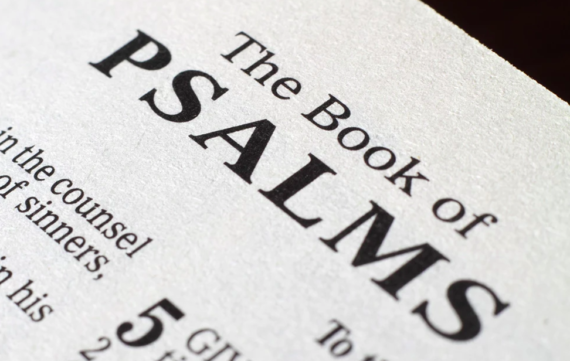Teach me your way, O Lord, that I may walk in your truth; unite my heart to fear your name. (11)
Many Christians have the desire to improve their prayer life, but they may have great uncertainty about how to do so. One of the great values of the psalms is in providing us with models of prayer. None of these models is perfect for every situation. But taken as a whole, the Psalms are incredibly helpful.
This psalm has been treated by some commentators as a second-rate psalm, a purveyor of borrowed words and phrases. While it is true that there are words here that are also found elsewhere, who is to say which passage is the borrower and which the lender? When we find words repeated, it is possible that both passages may have borrowed from a common but now lost source. Even if this psalm borrows words and phrases, a borrower may put borrowed material to a greater use than the one who first possessed it. Borrowed material is not always inferior.






Reasons for this plea
The form of this psalm is that of a lament, a plea for God’s merciful aid. Two categories of reasons are given in appealing for this help. Let us notice both. Then we must also notice the goal toward which the request moves.
Within the worshipper
There are reasons within the worshipper.
The first of these internal reasons is the worshipper’s neediness. He is “poor and needy” (1). He is under attack from insolent, ruthless enemies (14). Unlike the Pharisee of Luke 18, this writer pleads primarily his need rather than his worthiness.
A second internal basis of his appeal is his focus in making the appeal. He has placed his trust in God (2). He is crying out to God “all the day” (3-4). His is a cry for grace (6), which brings us to the second set of reasons.
Within God
There are also reasons within God for this prayer.
God is appealed to because of his goodness to those who call on him (5; cf 15-16). He is also appealed to because of his greatness (8), and because the Lord is worthy of all glory (17).
Goal of the plea
The sin of Adam and Eve was sparked by the desire to be like God illegitimately (Gen 3:5). But ultimately it is God’s desire that we learn to be like him (Gen 1: 26; Eph 3:19).
The goal of this prayer is not just a selfish desire for earthly blessing, or earthly deliverance, but a desire to become single-mindedly devoted to God, knowing his ways, thinking his thoughts, willing his will.
Teach me your way, O Lord, that I may walk in your truth; unite my heart to fear your name. 12 I give thanks to you, O Lord my God, with my whole heart, and I will glorify your name forever. (11-12)
How different is this from our prayers? How often do we try to appeal to God mainly based on a pretended worthiness instead of on the basis of his grace? How often do we appeal to him, not that he might mold us to his image but that we might have our own desires affirmed and upheld?
May this psalm inspire us to improve our prayer life. Let us strive to approach God with greater humility, greater appreciation for his mercy, and a stronger desire to wholeheartedly seek his will.
Søren Kierkegaard said, “Purity of heart is to will one thing.” This psalmist might agree. But we find it hard to maintain a heart purely focused on God. Our desires go in many different directions. Our hearts are often divided. Let us join in this prayer for a unified heart.

